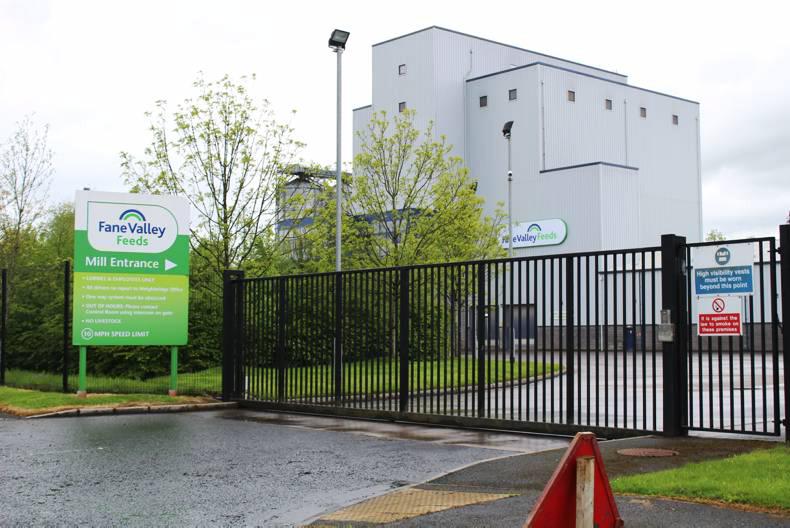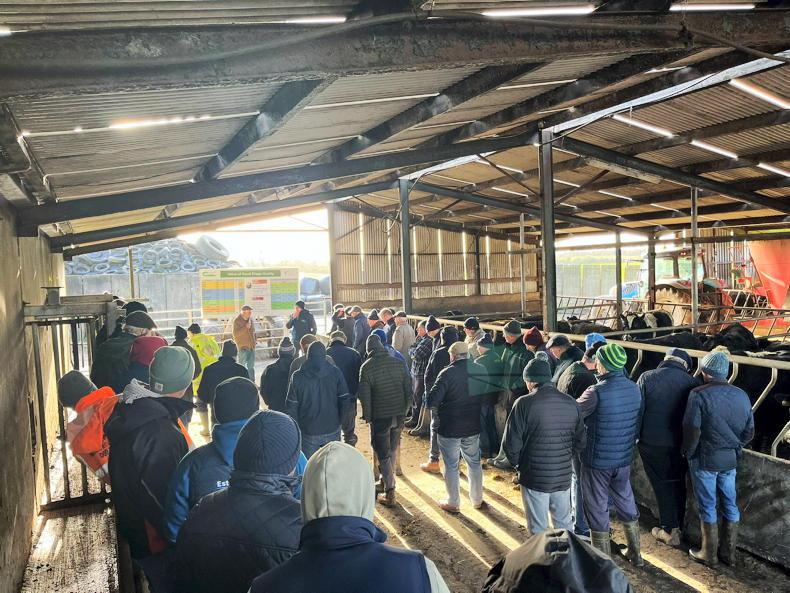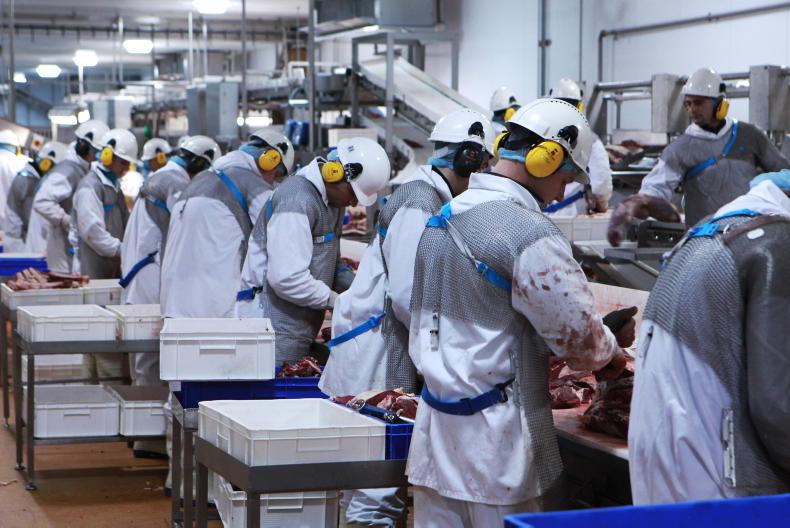The notification process to DG Competition in Brussels earlier this week included the rationale from the companies’ perspective for the proposed joint venture between ABP and Linden to run Slaney. This was outlined to the Irish Farmers Journal in an interview in February.
The proposed deal has created widespread opposition from farmer representative bodies, though the companies involved dispute the level of opposition on the ground. Farmer organisations protest strongly that a joint venture involving ABP isn’t in the interests of competition and Irish farmers. This view was robustly disputed by ABP and Linden.
Both companies challenged the use of language that suggests it is an ABP takeover of Slaney.
Operational independence
They pointed out that the ABP proposal to acquire the Allen family’s interest in Slaney is on the basis of them pursuing a joint venture with Linden to manage the Slaney and ICM businesses as a going concern. The new joint venture will have operational independence from ABP, which will nominate three directors to join three from Linden with an independent chair.
“The only linkage with ABP will be a positive one for marketing beef and lamb, as they will be able to tap into the global ABP marketing office network should they chose to do so, and even that is optional,” said ABP CEO Paul Finnerty.
He also referenced the relatively high positions in the factory price tables published weekly in the Irish Farmers Journal occupied by both Slaney and ABP factories as evidence that these companies are consistently among the top-paying buyers in the country.
Operational independence was confirmed by Trevor Lockhart, CEO of Fane Valley, the farmers’ co-op that owns Linden Foods. He emphasised that the last thing a farmers’ co-op would do is enter a joint venture that would in any way damage the interests of farmers.
On the contrary, the Fane Valley chief argues that strategic alliances such as that proposed with ABP are necessary if the Irish red meat industry is to maximise the opportunity presented by growing international market access.
Sheep producers concern
One of the issues that concerns sheep producers in Northern Ireland (NI) is what the Irish Country Meats (ICM) position on sourcing northern lambs will be. In England, ABP penalises mixed-origin beef by £1/kg and the concern is that the same principle could be applied to lambs coming south to ICM. The Fane Valley CEO is adamant that the ICM procurement policy will not be affected by the change in ownership structure, which will reassure lamb producers in NI.
When pressed on why Linden didn’t acquire the Allen shares themselves, Trevor Lockhart’s response was that strategically it was best for the Slaney/ICM business to have a large partner that extends their global customer reach. He was also adamant that Fane Valley was in red meat for the long term, with no interest in offloading its business to ABP in either Northern Ireland or the Republic of Ireland. He reiterated that the choice of ABP for a joint venture with Slaney was to build a sustainable joint venture business for the long haul, not an indication of intention by Linden to get out of red meat.

The challenge of getting approval from DG Comp in Brussels, the relevant competition authority, is a process that both companies expected. They pointed out that the decision by the Allen family to withdraw from the business was always likely to mean the buyer would be an organisation with existing meat business interests.
They are dismissive of the arguments raised concerning the Slaney Proteins rendering capability, highlighting that it only handles product from Slaney and ICM and as such does not compete for third-party material. When combined, ABP claims it will continue to handle 29% of the category one material as Slaney does not have a category one plant, and their combined share on the island will be 31% for category three material.
Farmer opposition remains
Farmer representative bodies aren’t persuaded by the case made by ABP and Linden. IFA president Joe Healy yesterday said that the very serious competition issues raised in the independent report commissioned by the IFA on the proposed ABP/Slaney Meats deal cannot be ignored by the Minister for Agriculture Michael Creed and the Government.
He also said that the IFA has been in contact again with Brussels and requested DG Competition to formally involve the Competition and Consumer Commission (CCPC) in Ireland and the Competition and Markets Authority (CMA) in the UK to ensure all competition issues raised are fully investigated and addressed.
The IFA report puts a particular emphasis on the concentration of buying power of ABP in the south Leinster region for premium steers and heifers in supermarket specification, should the deal be allowed to proceed.
The farmer fear reflected in the opposition to this proposed deal reflects the serious gap in trust that exists between factory operators and their suppliers. Only when that is built can a rational debate take place on the merits of rationalisation or mergers in the Irish meat industry. Many of the points made by the ABP and Linden chiefs to the Irish Farmers Journal are perfectly valid when considered in isolation.
Yet they do not persuade farmers who, when they analyse the concentration of buying power ABP would have in the south Leinster region, simply see less competition and choice for farmers. Put bluntly, farmers believe factories exploit farmer vulnerability any time they have a chance and the pulling of cattle price this week after the downpours last weekend in the west and north is given as an example.
Lack of confidence in processing is a failure in the beef industry not reflected in the dairy sector. There, the co-op structure and openness in accounting, along with farmer participation on boards, enhances farmer understanding and confidence that does not exist in the privately owned beef sector. Openness and transparency in beef processing is a necessary first step in building farmer confidence that will allow strategic debates in the industry take place.
Read more
Full coverage: ABP-Slaney deal
The notification process to DG Competition in Brussels earlier this week included the rationale from the companies’ perspective for the proposed joint venture between ABP and Linden to run Slaney. This was outlined to the Irish Farmers Journal in an interview in February.
The proposed deal has created widespread opposition from farmer representative bodies, though the companies involved dispute the level of opposition on the ground. Farmer organisations protest strongly that a joint venture involving ABP isn’t in the interests of competition and Irish farmers. This view was robustly disputed by ABP and Linden.
Both companies challenged the use of language that suggests it is an ABP takeover of Slaney.
Operational independence
They pointed out that the ABP proposal to acquire the Allen family’s interest in Slaney is on the basis of them pursuing a joint venture with Linden to manage the Slaney and ICM businesses as a going concern. The new joint venture will have operational independence from ABP, which will nominate three directors to join three from Linden with an independent chair.
“The only linkage with ABP will be a positive one for marketing beef and lamb, as they will be able to tap into the global ABP marketing office network should they chose to do so, and even that is optional,” said ABP CEO Paul Finnerty.
He also referenced the relatively high positions in the factory price tables published weekly in the Irish Farmers Journal occupied by both Slaney and ABP factories as evidence that these companies are consistently among the top-paying buyers in the country.
Operational independence was confirmed by Trevor Lockhart, CEO of Fane Valley, the farmers’ co-op that owns Linden Foods. He emphasised that the last thing a farmers’ co-op would do is enter a joint venture that would in any way damage the interests of farmers.
On the contrary, the Fane Valley chief argues that strategic alliances such as that proposed with ABP are necessary if the Irish red meat industry is to maximise the opportunity presented by growing international market access.
Sheep producers concern
One of the issues that concerns sheep producers in Northern Ireland (NI) is what the Irish Country Meats (ICM) position on sourcing northern lambs will be. In England, ABP penalises mixed-origin beef by £1/kg and the concern is that the same principle could be applied to lambs coming south to ICM. The Fane Valley CEO is adamant that the ICM procurement policy will not be affected by the change in ownership structure, which will reassure lamb producers in NI.
When pressed on why Linden didn’t acquire the Allen shares themselves, Trevor Lockhart’s response was that strategically it was best for the Slaney/ICM business to have a large partner that extends their global customer reach. He was also adamant that Fane Valley was in red meat for the long term, with no interest in offloading its business to ABP in either Northern Ireland or the Republic of Ireland. He reiterated that the choice of ABP for a joint venture with Slaney was to build a sustainable joint venture business for the long haul, not an indication of intention by Linden to get out of red meat.

The challenge of getting approval from DG Comp in Brussels, the relevant competition authority, is a process that both companies expected. They pointed out that the decision by the Allen family to withdraw from the business was always likely to mean the buyer would be an organisation with existing meat business interests.
They are dismissive of the arguments raised concerning the Slaney Proteins rendering capability, highlighting that it only handles product from Slaney and ICM and as such does not compete for third-party material. When combined, ABP claims it will continue to handle 29% of the category one material as Slaney does not have a category one plant, and their combined share on the island will be 31% for category three material.
Farmer opposition remains
Farmer representative bodies aren’t persuaded by the case made by ABP and Linden. IFA president Joe Healy yesterday said that the very serious competition issues raised in the independent report commissioned by the IFA on the proposed ABP/Slaney Meats deal cannot be ignored by the Minister for Agriculture Michael Creed and the Government.
He also said that the IFA has been in contact again with Brussels and requested DG Competition to formally involve the Competition and Consumer Commission (CCPC) in Ireland and the Competition and Markets Authority (CMA) in the UK to ensure all competition issues raised are fully investigated and addressed.
The IFA report puts a particular emphasis on the concentration of buying power of ABP in the south Leinster region for premium steers and heifers in supermarket specification, should the deal be allowed to proceed.
The farmer fear reflected in the opposition to this proposed deal reflects the serious gap in trust that exists between factory operators and their suppliers. Only when that is built can a rational debate take place on the merits of rationalisation or mergers in the Irish meat industry. Many of the points made by the ABP and Linden chiefs to the Irish Farmers Journal are perfectly valid when considered in isolation.
Yet they do not persuade farmers who, when they analyse the concentration of buying power ABP would have in the south Leinster region, simply see less competition and choice for farmers. Put bluntly, farmers believe factories exploit farmer vulnerability any time they have a chance and the pulling of cattle price this week after the downpours last weekend in the west and north is given as an example.
Lack of confidence in processing is a failure in the beef industry not reflected in the dairy sector. There, the co-op structure and openness in accounting, along with farmer participation on boards, enhances farmer understanding and confidence that does not exist in the privately owned beef sector. Openness and transparency in beef processing is a necessary first step in building farmer confidence that will allow strategic debates in the industry take place.
Read more
Full coverage: ABP-Slaney deal












SHARING OPTIONS